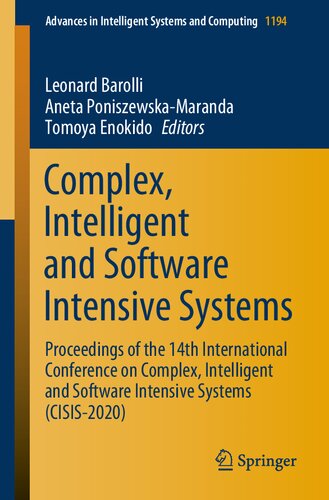

Most ebook files are in PDF format, so you can easily read them using various software such as Foxit Reader or directly on the Google Chrome browser.
Some ebook files are released by publishers in other formats such as .awz, .mobi, .epub, .fb2, etc. You may need to install specific software to read these formats on mobile/PC, such as Calibre.
Please read the tutorial at this link: https://ebookbell.com/faq
We offer FREE conversion to the popular formats you request; however, this may take some time. Therefore, right after payment, please email us, and we will try to provide the service as quickly as possible.
For some exceptional file formats or broken links (if any), please refrain from opening any disputes. Instead, email us first, and we will try to assist within a maximum of 6 hours.
EbookBell Team

4.8
54 reviewsThis book explores three interwoven and challenging areas of research and development for future ICT-enabled applications: software intensive systems, complex systems and intelligent systems.
Software intensive systems are systems that extensively interact with other systems, sensors, actuators, devices and users. More and more domains are now employing software intensive systems, e.g. the automotive sector, telecommunication systems, embedded systems in general, industrial automation systems and business applications. Moreover, the outcome of web services offers a new platform for enabling software intensive systems.
Complex systems research is focused on the overall understanding of systems rather than their components. Complex systems are very much characterized by the changing environments in which they operate through their multiple internal and external interactions. They evolve and adapt through (internal and external) dynamic interactions.
The development of intelligent systems and agents, which is increasingly characterized by the use of ontologies, can be beneficial for software intensive systems and complex systems alike. Accordingly, recent research in the areas of intelligent systems, robotics, neuroscience, artificial intelligence, and the cognitive sciences is essential to the future development of software intensive and complex systems.